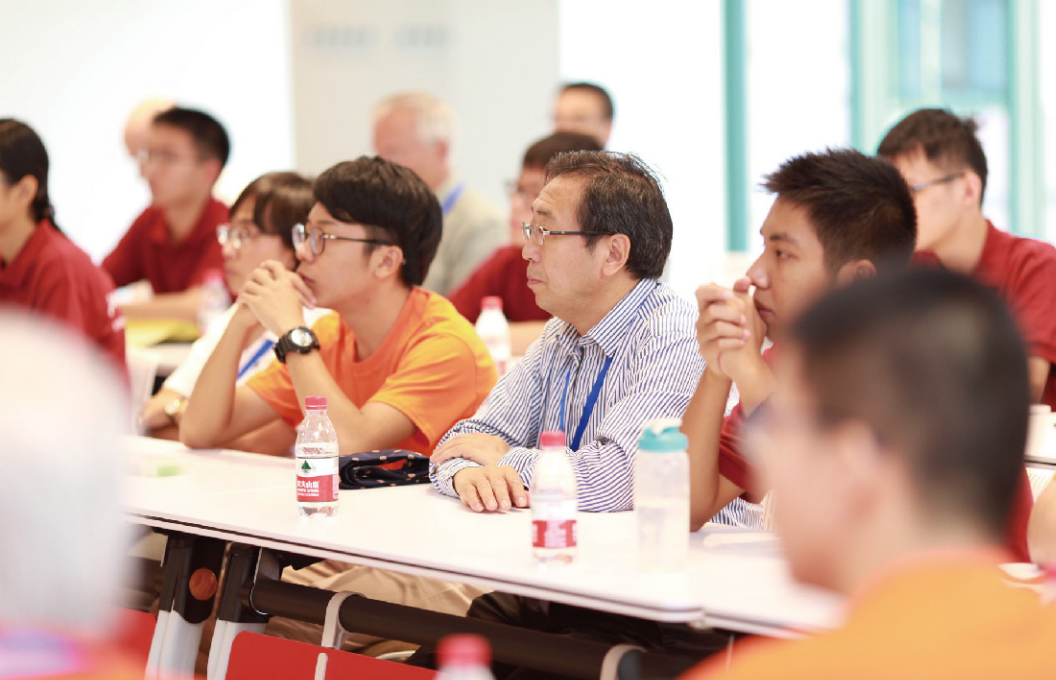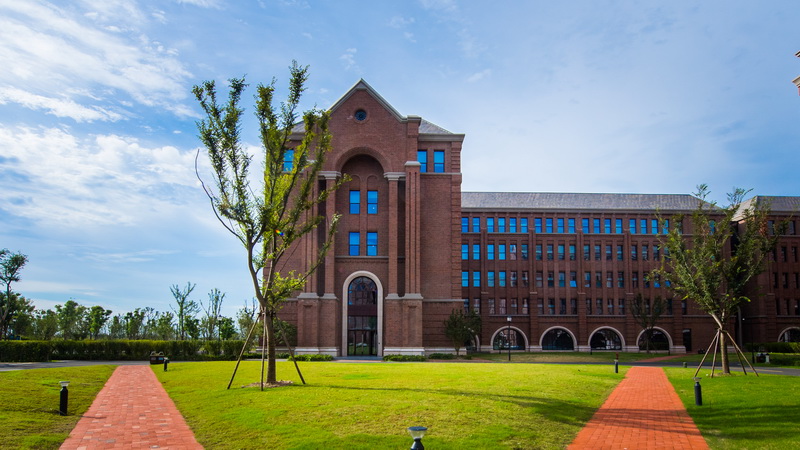In June, 2020, Prof. Li Er-ping, former Dean of ZJUI published his article “Thoughts on International Collaboration in Education During the Pandemic - Both Current and Future Developments" on Chinese Foreign Cooperative Education,Vol. 2. The full text is as follows.
Sino-foreign collaboration in education has been one of China’s most important strategies for the integration of leading educational philosophies from beyond China. Not only does it raise the quality of education, such collaboration also enables China to provide world-class teaching, specifically at the level of tertiary education. Sino-foreign collaboration is now entering the crucial stage of intensively developing its character and values, as the local community begins to recognize the potential of collaborative education. On the international stage as well, China’s joint universities are also gaining increasing attention. However, due to the outbreak of the Covid-19 virus in January this year, cross-border exchanges have slowed, negatively impacting international cooperative education. This poses a dilemma: those from the inside are trapped whereas those from the outside are blocked.
Facing such challenges, most Sino-foreign joint education organizations and projects quickly adapted to these adverse circumstances, joining forces with other organizations to come up with the best possible solutions. Using Zhejiang University – University of Illinois at Urbana Champaign Institute (ZJUI) as an example, we can explore the current and future outlook on Sino-foreign collaboration in education.
Challenge: Blocked from entering, trapped from leaving
International collaboration in education revolves around one important foundation: the cross-boundary exchange of Chinese and foreign students and faculty. Due to the seriousness of the pandemic, which triggered an almost complete lockdown of international travel, joint education ventures face challenges in various aspects including team building, international cooperation, class management, and research projects. Take ZJUI as an illustration: half of its faculty members hold non-Chinese passports and, as school starts, many foreign faculty members will be unable to enter China to conduct classes. While online classes can replace on-campus lectures, students and teachers from different time zones face the difficulty of finding time slots to have video-conference-based meetings. Also, many international academic conferences and student-exchange programs have been forced to cancel. There have been delays in purchasing imported laboratory equipment, which has had a significant effect on the construction of laboratories and the production of experimental research findings. ZJUI’s faculty recruiting plan, due to certain requirements that necessitate the candidate’s actual, physical presence.

Resolve: Be firm and work on what we can
As pointed out in the national education conference, China should be ready to ‘open up’ its education and be willing to cooperate with leading foreign institutes. Well-planned cooperation with other educational institutes is vital to creating universities that are rich in diversity as well as fully realizing the concept of globalization. Compared to traditional, local education, Sino-foreign education focuses more on in terms of cultural exchanges as well as on international cooperation. While we work on establishing a strong foundation in the local community, we widen our horizons and nurture and embrace foreign talents. Therefore, during these difficult times of the Covid-19 pandemic, it is important to have the correct mindset in the first place, which for ZJUI, is to hold strong to its motto and vision. From late January 2020, ZJUI has been analysing the development of the pandemic while having frequent meetings and discussions with its joint partners to come up with strategies and solutions to overcome all possible challenges.
While holding firm to beliefs and being able to remain calm during the pandemic on one hand, it is also important to be practical and able to identify those core, solvable problems. It is easy to fret over the huge problems at hand and worry about everything, yet achieve nothing in the end. Therefore, it is crucial that schools and organizations ‘sit themselves down’ and solve what can be solved, one problem at a time. As long as all the small fixable parts are dealt with, then we are not too far from solving the whole problem. For instance, to overcome the challenge that many of ZJUI’s teaching staff come from foreign countries and are unable to conduct on-campus lectures, ZJUI managed to set up a fully functional and effective online learning platform. By using applications and online services like Blackboard, WebEx and Zoom, all ZJUI’s teaching staff conduct online classes by following a well-planned timetable that avoids possible difficulties such as overloaded internet traffic that can result in the system’s failure. At the same time, big data collection analysis is used to improve the quality of teaching.
On the other hand, to overcome the challenge of having an on-site academic conference, ZJUI came up with a new way for academic and research cooperation – an online mode of cooperation and academic exchange. Faculty from both universities work on developing online conferences, and work collaboratively on drafting future research planning. In terms of student research programs, the guidance process is conducted online and, if needed, simulation is used to replace actual experiments. In certain cases, students are also looking into the possibility of conducting experiments online. Nonetheless, there are also certain events that have had to be cancelled or postponed due to their requiring actual face-to-face meetings, such as faculty recruitment. As an alternative, ZJUI has been proactive in developing its online platform to attract interested parties. Besides making those interviews available online, ZJUI also actively participates in many online recruiting events such as ShuoBo and UC Wide Stem.
Future: Building a Sustainable System of Local Education Hubs with International Characteristics
The main objective of Sino-foreign education cooperation is to nurture young individuals with national passion, international vision, global competitiveness and a sense of worldwide responsibility. The key takeaway from the Covid-19 pandemic in terms of international education cooperation is we should, on one hand, continue work on opening up China to the outside world to encourage and embrace diversity; on the other hand, we should also work hard on building local hubs that can provide effective international education. Such an idea combines the advantages of international education with local education, subsequently coming up with a high-quality teaching system that is diverse and also highly compatible with China’s original teaching system. Such an approach can also improve risk management.
The Covid-19 outbreak is the catalyst that is launching a revolution in global education. The outbreak can also be seen as a ‘glue’ that reinforces global educational partnerships that share similar visions of education, i.e., that education should be accessible to all and institutes can always share educational resources. Equally importantly, the outbreak has given us opportunities to improve the ways we work in terms of teaching services and technologies. As the consequences of Covid-19 are now becoming increasingly understood and ‘normalized’, Sino-foreign educational cooperation is facing further unprecedented challenges. But challenges often mean opportunities for improvement, and our belief that education should be diversified and globalized remains intact. We should use these difficult circumstances to identify our weaknesses and shortcomings and strive to correct them and improve our performance. Yet we should also take this opportunity to strengthen the positive elements and practices that we have developed to date and thus use all our accumulated resources to their maximum potential. The initiative of international education has many unique advantages, and it is important that we keep hold of them despite these tough times we are currently experiencing. Even better, we can and should take our joint initiative a few steps forward.
Translation: LAI Shuxian & Roda Morrison





